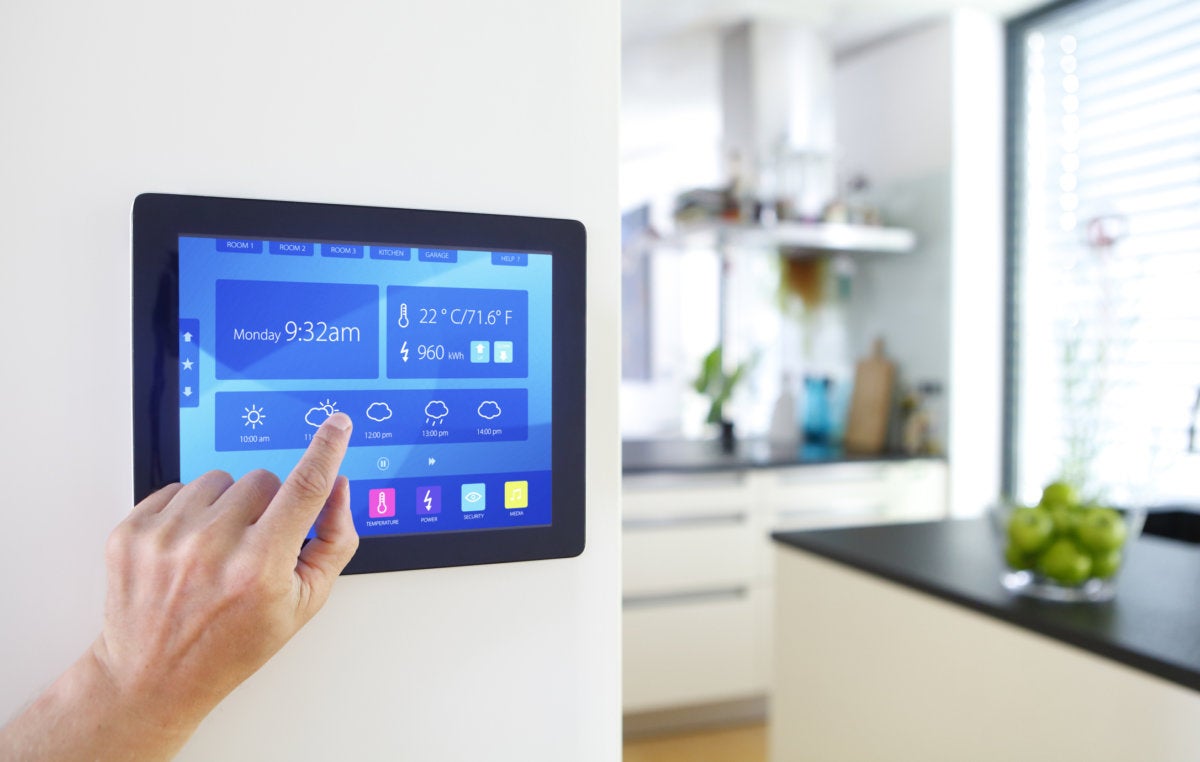Buying a house is a very big deal and with so much to be concerned about, it’s necessary to focus on the most important items. So, if you’re wondering, “what to look for when buying a house,” here then are 11 important things to consider and investigate before you sign that offer to purchase:
The Yard is Key

Those that know what to look for when buying a house always take note of the condition of the yard because a well-kept and landscaped exterior can mean that the present owners care about the condition of their home and have worked hard to maintain it. A deep-green nicely trimmed and edged lawn can mean a great looking home interior while a weedy brown unkempt mess can mean trouble.
What About HVAC?
On a pleasant 70-degree day almost any home will feel comfortable. We do suggest, however, that you view your prospective new home on a very hot or very cold day—of course depending upon the season. If the AC is struggling to get the house below 80, or if the furnace can barely raise the temperature over 68 degrees, those who know what to look for when buying a house will recognize these occurrences as danger signals. Unless that doesn’t bother you, check Fresh Air Guide product review for an efficient new air conditioner.
Look Up There
Roofs can be deceiving because they may look great from below, but a more careful inspection can present deficiencies that can’t be seen from the ground. Extreme hot, cold, wind, rain, snow and hail are all thing that can damage roofs and these problems will be evident if you take a closer look. Also find out the age of the roof because covering materials like shingles do have a certain life expectancy.
Paint Issues
Those that know what to look for when buying a house will not be fooled by a new paint job. Yes, clean freshly painted walls can look great, but they can also easily cover up problems like mold, mildew and water leaks. Make sure you understand where leaks come from and how they can be cosmetically covered up. Getting rid of brown water stains does no good if the source of the leak is not removed, so make sure you are able to look beyond the paint.
History of the House
Check the property area’s flood history. If the home is on a flood plain, that means you can have lots of problems along with a big insurance bill. If your home is not in a flood-prone area, make sure that it doesn’t have internal problems. A neglected overflowing toilet can cause a lot of flood-like damage if it isn’t promptly noticed, so ask the present home residents about any such occurrences. Homeowners generally have a duty to disclose any home defects to you even if you intend to purchase the home on an “as is” basis.
Fires?
A previous fire does not mean you should automatically dismiss the home from your list. Those that know what to look for when buying a house understand that a one-time event caused by a one-time problem should not necessarily dissuade them from considering a purchase. A fire that was caused by faulty aluminum wiring, however, might be a big problem if the house still has its original aluminum wiring in place.
Funky Smells
If you get an unpleasant whiff of anything, beware. Musty odors can mean mold caused by water leakage, and a kitchen that smells like an old restaurant could have a faulty or non-existent exhaust system. Smelly bathrooms can mean waste pipe issues and if the house smells like an old dog, an old dog probably lives there even if he isn’t home at the time you are shown the property. Of course, if the house smells artificially clean due to numerous pleasant odor-emitting devices, those that know what to look for when buying a house will be sure to take careful notice.
Insulation
A poorly insulated house is a naked property. Your parents’ home may have had the twin trouble of less-than-adequate insulation combined with an inefficient furnace that shot 60 percent of the heat created up the chimney. With today’s higher energy costs, it’s important to make sure that your home has the proper amount of quality insulation, and this includes windows and doors that do not let cold in and heat out. Also look for a home equipped with ceiling fans that will equally disperse cool and warm air depending upon the season.
Smart Home

Smart homes are the key to safety and efficiency. Those that know what to look for when buying a home realize that smart innovations like thermostats, solar systems, garden irrigation systems, LED lighting configurations and security systems all make homes safer and of course more valuable. A fully automated home with a central control center is often a sought-after property.
Plumbing
Let’s not neglect the sometimes-forgotten plumbing system. Just because the toilets flush and the faucets run, doesn’t mean that everything is OK. Look on the floor below bathrooms for water stains, and open cabinets to make sure that pipes are not corroding. Check the garbage disposal and make sure that the dishwasher does not fill up the sink with greywater during its cycle. All washer and dryer connections should be clean and tight.
Have It Inspected
Finally, even though you have done your diligence and are convinced that the home is sound, employ a professional inspector to thoroughly assess the condition of the property. While this may cost $500 or more—and you have to pay for it—it could be the most important $500 you will spend during the home purchasing process. Inspectors should know all of the tricks homeowners utilize to hide defects and problems, and anything uncovered during the inspection can be made the responsibility of the seller or you can alternatively decide not to sign that purchase offer.
Buying a house is a big deal and you should take the time to know exactly what you are buying so that you can avoid costly issues that can occur the minute you have closed the deal.
